06
What it Takes to Develop a Military Cyber-Force
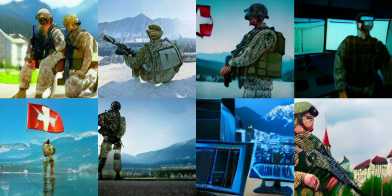
States often struggle to develop a military cyber-force, as the time and resources required for an effective capability are much greater than often appreciated, argues Max Smeets in this CSS Policy Perspectives.
The IT Army of Ukraine

The IT Army of Ukraine was stood up in an ad-hoc manner without a clearly structured and proven plan. Born out of necessity, the IT Army subsequently evolved into a hybrid construct that is neither civilian nor military, neither public nor private, neither local nor international, and neither lawful nor unlawful. This CSS Cyberdefense Report by Stefan Soesanto provides the first-ever comprehensive analysis of the IT Army’s structure, tasking, and ecosystem.
Sicherheit 2022. Aussen-, Sicherheits- und Verteidigungspolitische Meinungsbildung im Trend
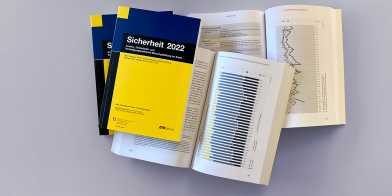
The Military Academy at ETH Zurich and the Center for Security Studies at ETH Zurich have published the survey «Sicherheit 2022». Since 1999, the annual study has evaluated long-term trends and tendencies in public opinion on foreign, security and defense policy issues in Switzerland. Due to the war in Ukraine, a follow-up survey was carried out this year, which will be published on July 14, 2022.
Andreas Wenger: «Die Schweizer Neutralität wird neu justiert»

The war in Ukraine has also fundamentally changed the security order in Europe. What does that mean for Switzerland and its self-image as a neutral country? In the SRF Tagesgespräch, CSS director Andreas Wenger puts the current debate on neutrality into perspective.
Annual Report 2021

This annual report provides an overview of our activities and is intended to encourage reading of our publications. Our publications are available online here on our website. If you would like to receive regular updates on CSS publications, you can sign up for our monthly newsletter here www.css.ethz.ch/en/center/css-newsletter.html, or follow us on Twitter (@CSS_Zurich), Facebook (@css.zurich) or LinkedIn.
Russia’s War and the Global Nuclear Order
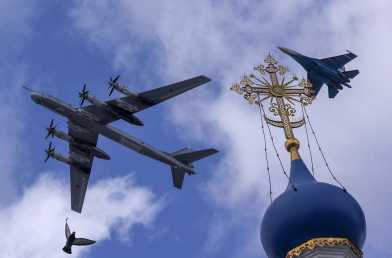
Russia’s war in Ukraine, conducted behind the shield of nuclear deterrence and the threat of escalation, has increased the salience of nuclear weapons worldwide. It endangers the multilateral norms and processes in place to prevent nuclear proliferation and complicates any near-term prospects for disarmament, argues Névine Schepers in this CSS Policy Perspective.
Sicherheitsordnung nach Moskaus Ukraine-Invasion
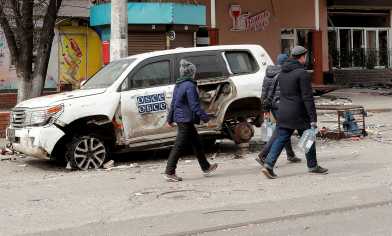
Russia cannot be integrated into a cooperative security system in Europe in the foreseeable future. The West must support Ukraine and contain Russia's military might. But Russia remains important for the stability of Europe. The question is what role the country should play in a future post-war order, explains Jeronim Perović in this CSS Policy Perspective.
The War Against Ukraine Shapes NATO’s Future
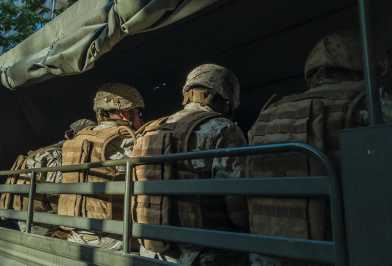
The Russian invasion of Ukraine revitalized NATO and marked the return of US leadership in the alliance. However, the coming months may prove more difficult for NATO to navigate due to a series of dilemmas that could endanger its cohesion, argue Dominika Kunertova and Niklas Masuhr in this CSS Policy Perspective.
NATO’s Adaptation to the Russia Threat
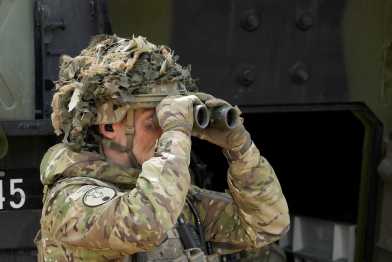
Russia’s invasion of Ukraine requires NATO to eliminate doubt about its ability and resolve to defend its eastern territory by outweighing its current personnel and equipment understrength. Sweden and Finland’s likely accessions add to this effort. NATO’s adaptation will depend on a bigger European responsibility and renewed public discussions about the importance of security and defense, argues Henrik Larsen in this CSS Analysis.
Russia’s War in Ukraine: India’s Balancing Act
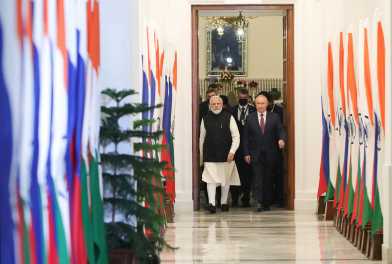
New Delhi’s refusal to condemn Russia’s war in Ukraine complicates its foreign policy maneuvering. How India positions itself in an increasingly polarized competition for global dominance will become more important. It will continue to leverage conflicting partnerships to secure its own rise, argues Boas Lieberherr in this CSS Analysis.